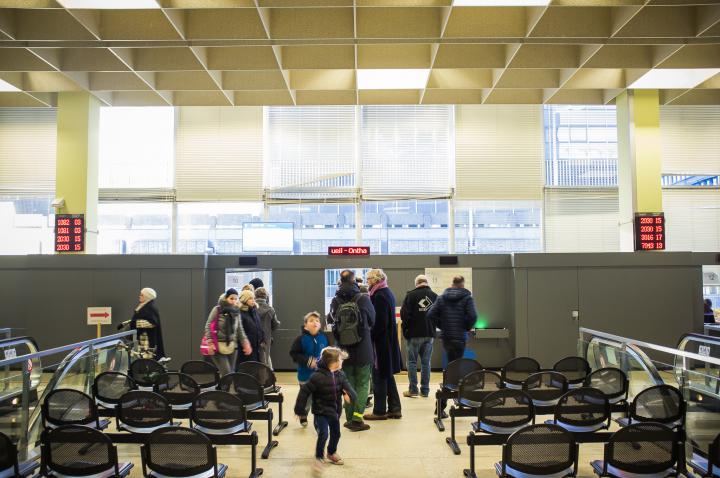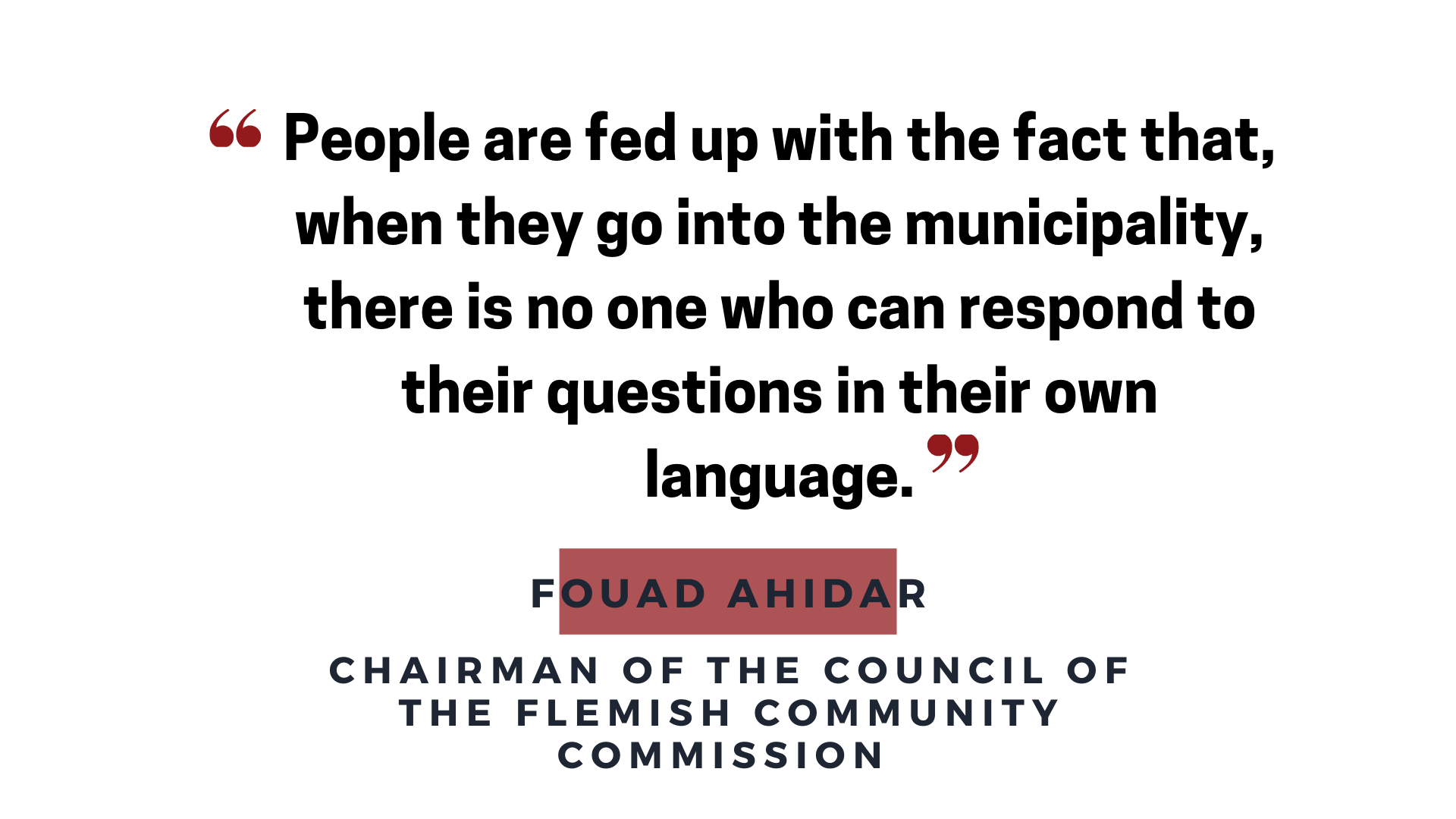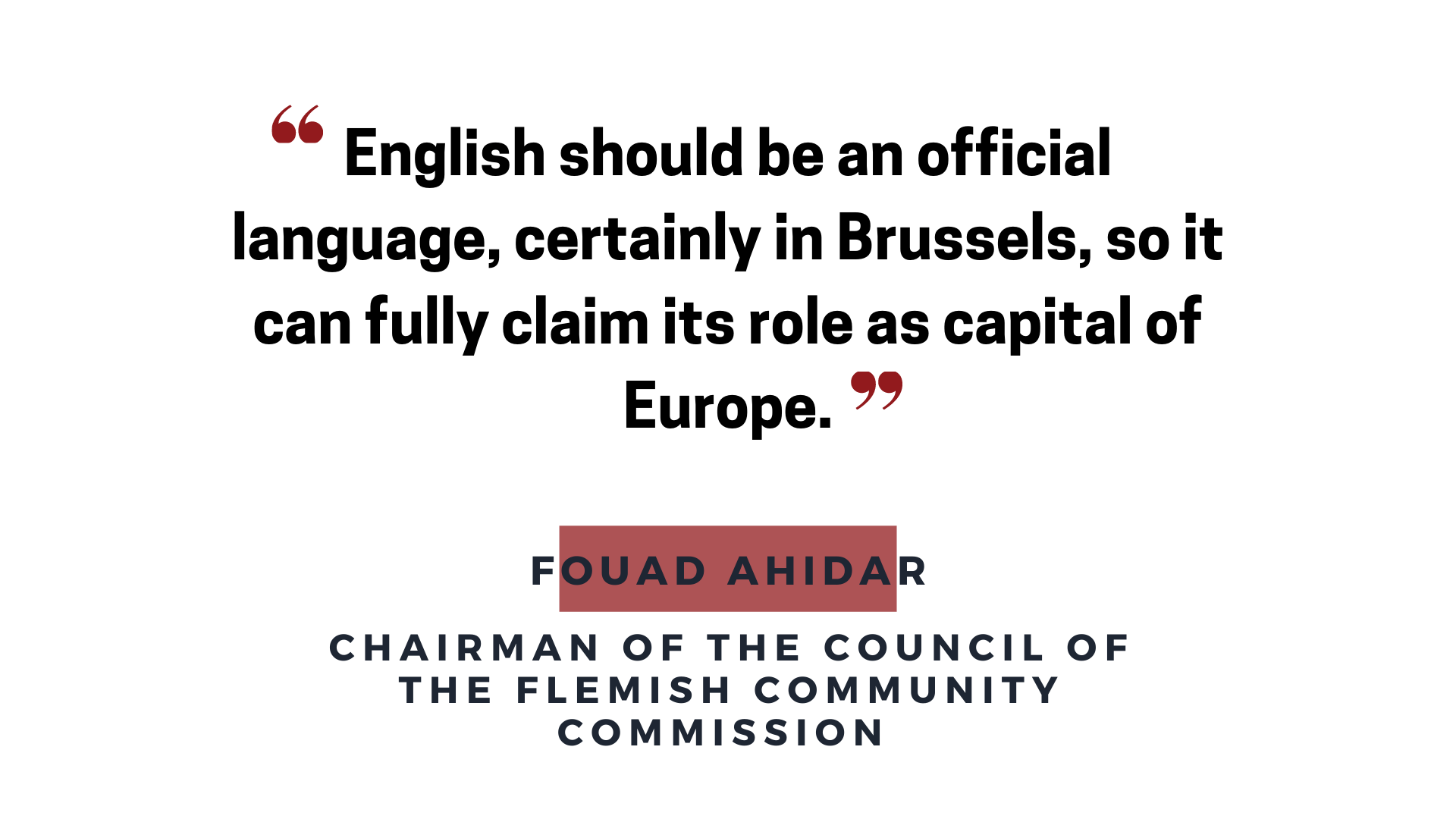Brussels’ communes are facing criticism from citizens and politicians who believe they are disproportionately serving French-speaking citizens, leaving Dutch and English-speaking people struggling to access vital services.
As a legally bilingual city, Brussels' language law states that civil servants with a permanent contract must be able to address the public in both languages "without any difficulty." According to the latest data published last year by the vice governor of the region, however, 1,829 of the 3,123 permanent contract decisions made in Brussels were in violation of this law.
“People are really fed up with the fact that, when they go into the municipality, they have to wait for a long time because there is no employee who speaks Dutch and can give answers to their questions in their own language,” Fouad Ahidar, Chairman of the Council of the Flemish Community Commission told The Brussels Times.
In some cases, the commune may be able to prove an employee with a permanent contract is making the necessary efforts to comply with the language laws, meaning the suspension can be lifted.
In others, communes can decide to revoke or maintain the decision of suspension. However, it is up to the region to terminate the contract decision and in 2019, no decision was revoked after suspension on the basis of the violation of the language legislation.
Ahidar argued that to reach language equality, the region's authorities, the communes and the vice-governor who helps decide on suspensions all have to be stricter.
“They have to say: ‘If you want to receive a permanent contract, you have to at least show knowledge of both languages.' They don't even have to know all the vocabulary, but they have to be able to help citizens. If not, they should not be allowed to work in communes,” said Ahidar.
Bilingualism is required for all vacancies, according to Fabrice Voogt, the spokesperson for Ahmed El Ktibi, Alderman of Civil Registry Office, Population, Demography, and International Solidarity. "But we sometimes have difficulty finding candidates who are bilingual," he told The Brussels Times.
Lifelong learning
This lack of Dutch-speaking recruits is due, in part, to the low standards in language education in French-speaking schools, according to Ahidar, which he said is causing "a vicious circle that needs to be broken in Brussels."
“In the French-speaking education system in Brussels, fewer than 10% of pupils graduate with a decent knowledge of Dutch. So we should not be surprised if later on there are too few bilingual people for government jobs,” Ahidar explained.

Fouad Ahidar said language education in French-speaking schools in Brussels should be improved to solve the lack of Dutch-speaking civil servants. Credit: Cabinet Fouad Ahidar
One solution, to Ahidar, is to educate civil servants already employed by communes to the level of bilingualism required by the language legislation.
When questioned about the lack of civil servants with a knowledge of Dutch in parliament, Bernard Clerfayt, Brussels Minister for Employment and Local Authorities brought up the Regional School for Public Administration (ERAP), which offers language courses to civil servants, and receives over €3 million in government grant subsidies.
Now, according to Ahidar, it is time for the communes to do their part and encourage - or oblige - Brussels civil servants to take a language course in Dutch.
Jens Popelier, the spokesperson for Ans Persoons, the Brussels cabinet minister for Dutch affairs, told The Brussels Times that communes are offering financial incentives to employees who undertake the government's official Selor language tests.
The spokesperson for Philippe Close, the mayor of Brussels, Maïté Van Rampelbergh, said they are aware of this issue and are working to ensure Dutch is a fully-fledged language by optimising the training of civil servants in Dutch, but emphasised that it "takes a long time to fully educate the future generation of Brussels and to improve the education of existing generations."
Both Van Rampelbergh and Popelier added that communes are also promoting Dutch in more practical ways, by sharing documents with employees with typical sentences in Dutch on current topics or by sending fortnightly internal mails with language tips.
Dutch first, English later?
Promoting multilingualism in Brussels doesn't have to stop at Dutch once a successful system is in place, with Ahidar explaining that there's no reason English couldn't receive more permanent status, also in the service from communes.
“My party is in favour of making English an official language, certainly in Brussels, so it can fully claim its role as capital of Europe. There are a lot of people who come to live here who don't speak French or Dutch, so we also have to offer services that can help these people to make sure they feel included,” Ahidar said.
According to Brussels Minister for the Promotion of Multilingualism Sven Gatz, the handling of the coronavirus crisis by all regional governments triggered the “first movements” to redefine Belgium’s language system.
"It has also presented us with an opportunity to discuss multilingualism in the country, and the modernisation of the law to consider English as one of the main languages in Brussels can be a first step in this," Gatz told The Brussels Times.
Ahidar emphasised that this promotion of multilingualism is important not only in communes but also in other public services including hospitals and police stations, for people to be able to speak their native language, especially in situations where they are discussing personal or emotional matters.
“But this goes further than just language. These services are there to help people, and if staff are not there to help people, then they shouldn’t be in that position. They should do everything to help citizens with a smile on their faces, and if you can't do that, they should leave,” Ahidar concluded.



